Strictly Personal
France Weaponizes Press Freedom in Its Relations with Morocco, By Aziz Boucetta
Published
1 year agoon

A leading French television channel’s recent dismissal of French-Moroccan journalist Rachid Mbarki should not so much surprise as lead us to make observations, then to ask questions, some real questions, and to provide answers, some genuine answers. And the first question is this: now that we know what Mr. Macron’s France wants, what do we want, and what can we do, for our part?
The brutal and unfounded eviction of Rachid Mbarki from BFMTV is only the umpteenth confirmation of France’s political and media elite’s growing animosity towards Morocco, and of Morocco’s equally growing hostility and defiance towards France.
Be it because of a certain lack of imagination, some sort of overconfidence, a version of political myopia, or through the sheer persistence of old grievances, France’s governing elite has been working tirelessly to smear Morocco. How paradoxical, however, that they continue to invoke human rights violations in an attempt to embarrass Morocco while being oblivious to their own country’s sins on the question.
France’s illusion of press freedom
Just consider Le Monde’s aggressiveness in much of its recent coverage of Morocco. While this left-leaning French newspaper’s dim view of Morocco certainly has historical precedence in the French — and Western — media and intellectual landscape, its hostility has become particularly tense in recent years. To put things into their proper historical and political context, it is essential to know that Emmanuel Macron was at the helm when BFMTV bought out in the late 2010s by its current shareholders.
Knowing this is critical to better understand this so-called leading media organization’s fixation on Morocco. For one thing, attacks on freedom of the press are now much more worrying in France itself because of Macron’s insistence that his country’s media organizations, many of which are eager to oblige, should play a more assertive, aggressive role in advancing France’s strategic interests.
Let’s consider some factual elements. Speaking before his country’s diplomatic corps in early September of last year, Mr. Macron said that it was necessary to “make a much better use of the France Medias Monde network, which is absolutely key and which must be a strength for us.” In good French, “much better” means improving what is already there.
And in a sense, France’s leading media groups’ shift toward playing a “much better” role in Paris’ strategic projections has already been in full display in the way that media houses like Le Monde Monde and France24 in particular, have reported on Morocco in the past few years.
Perhaps a perfect illustration of this trend is their coverage of the Pegasus affair in 2021, which was a “scientific” hype against Morocco. While they repeatedly sang their commitment to human rights in their Pegasus reporting, for example, France24 — but also other French media outlets — carefully refrained from covering the last-minute cancellation of Ferhat Mehenni’s appearance on CNews on October 2.
Particularly outrageous was that the televised interview of the president of the Kabyle self-determination movement was canceled after he had already entered CNews’s studio. Meanwhile, both CNews and France’s other establishment newspapers surprisingly did not say or write a single word about the recent visit to Paris of the senior Algerian army official General Chengriha.
Is it then necessary to recall President Macron’s summoning of a dozen of “influential editorialists” to discuss talking points on the government’s pension reform and other policies? Yes, it is necessary. As such, it is equally useful to recall French authorities’ very violent and rapid suspension of the Russian media outlet Russia Today in February 2022, or the French government’s disturbing yet unsurprising silence on the Julian Assange case.
That a country that sees itself as the ultimate champion of press freedom was prompted to ban a media organization on ideological grounds, or has been conspicuous by its silence while a true freedom of press fighter rot in jail in the UK and faces extradition to the US, where he stands the risk of a 175-year prison sentence, should speak volumes about France’s supposed commitment to preserving journalists’ rights.
The problem, however, is that French public opinion strangely persists in sheepishly believing in this freedom of the press hype. But an even more worrying problem is that some intellectuals and activists under our skies also continue to believe in this hype and in whatever the French press, under the orders of Mr. Macron, thinks of or says about us!
This is surely not to say that we should also start pointing fingers at the self-described grand French Republic for all its failures to uphold press freedom. Regardless of what we may think of this Republic, it is clear that it defends what it thinks and believes to be right for its interests. And it should, must be the same for us and our own, including our militants and leaders.
What our dissidents and militants need to understand
For what obscure reason — which is becoming clearer and clearer — so many of our people continue to give credit to the cries and writings of the French media and their Belgian commensals on Morocco? They rush to any critical article, abundantly circulate any TV program about Morocco, sit in the TV studios and in the editorial offices to endorse any attacks on Morocco, take as gospel any judgment about the kingdom, approve any accusation targeting Moroccan services or institutions…
But they become revealingly mute when TLSContact illegally tapes visa-seeking Moroccans (including themselves), and they rush for rhetorical shelters when the European Parliament, despite being mired in corruption, votes (or burps) a “legislative” slur against their own country… This is worrying and regrettable.
Do these “our people” even know that “our French friends,” who persist in calling for a UN solution to the Sahara issue, had, in 1988, during the New Caledonia crisis, first submitted to mainland France’s populations for approval the proposal for a referendum on independence for the New Caledonians?
Indeed, it took a “yes” from the metropolitan French for New Caledonians to hold a referendum. Wouldn’t what is valid for France be valid for Morocco, especially given that the French national archives are full of 18th-century historical documents and correspondences confirming Morocco’s sovereignty over Western Sahara?
It is high time that our activists started militating for their ideas and opinions by putting them forth in Morocco and for Moroccans to decide whether or not their causes are convincing or worth defending, and fighting for. The point is that Morocco’s issues can be discussed — and sometimes resolved –, among Moroccans, without our activists having to appeal to international or French NGOs.
That is, our activists and intellectuals should stop taking as irrefutable truth the oriented conclusions of international NGOs; they should stop giving credit to the writings of French or other foreign journalists who are known to be loyal to the higher interests of their country.
If the European Parliament’s latest resolution on Morocco has demonstrated anything, it is that Moroccans should indeed stop feeding themselves with everything that the others — the French press, Reporters without Borders, Human Rights Watch, ect. — say or write about us, about human rights violations in Morocco.
What to do?
Therein lies the problem and therein lies, too, this question: Are we really able to decide on our alliances and strategic partnerships in accordance with what benefits our stance on the Sahara issue, as King Mohammed VI said in the summer of 2022? Do we really have the means to make our voices heard, loud and clear, on the international stage?
Do we have media outlets that are sufficiently equipped, supported, and backed by our state to defend our utmost national cause and our other causes, here and elsewhere? Are we capable and bold enough to convince, or even defeat, the opponents of our highest interests, as is done in France, Spain, Germany, the United States, and elsewhere? The silence of the government weakens us, and the irritation of the parliament hardly strengthens us, for only the power of the media — classical or digital — counts in the narrative war that French media and other actors have been waging against our country.
Now is the time for Moroccans to make a decision about where they want to assert themselves and impose themselves or where they do not want to. If we are afraid or hesitant, then let us stay where we are.
We cannot be big when we think small, and we cannot be imposing when we remain fragile. To be big, you need big means, because only by projecting strength and self-confidence can you get others’ respect, including from a country that is navigating so many challenges and is in such a delicate situation where we are powerful and influential. We just have to make up our minds.
You may like
Strictly Personal
This Sudan war is too senseless; time we ended it, By Tee Ngugi
Published
3 days agoon
April 28, 2024
Why are the Sudanese Armed Forces (SAF) and the paramilitary Rapid Support Forces (RPF) engaged in a vicious struggle? It is not that they have ideological, religious or cultural differences.
Not that people should fight because of these kinds of differences, but we live in a world where social constructions often lead to war and genocide. It is not that either side is fighting to protect democracy. Both sides were instruments of the rapacious dictatorship of Omar el-Bashir, who was overthrown in 2019.
Both are linked to the massacres in Darfur during Bashir’s rule that led to his indictment by the International Criminal Court for crimes against humanity. They both stood by as ordinary, unarmed people took to the streets and forced the removal of the Bashir regime.
None of these entities now fighting to the last Sudanese citizen has any moral authority or constitutional legitimacy to claim power. They both should have been disbanded or fundamentally reformed after the ouster of Bashir.
The SAF and the RSF are fighting to take over power and resources and continue the repression and plunder of the regime they had supported for so long. And, as you can see from news broadcasts, they are both well-versed in violence and plunder.
Since the fighting began in 2023, both sides have been accused of massacres that have left more than 30,000 people dead. Their fighting has displaced close to 10 million people. Their scramble for power has created Sudan’s worst hunger crisis in decades. Millions of refugees have fled into Chad, Ethiopia and South Sudan.
The three countries are dubious places of refuge. Chad is a poor country because of misrule. It also experiences jihadist violence. Ethiopia is still simmering with tensions after a deadly inter-ethnic war.
And South Sudan has never recovered from a deadly ethnic competition for power and resources. African refugees fleeing to countries from which refugees recently fled or continue to flee sums up Africa’s unending crisis of governance.
Africa will continue to suffer these kinds of power struggles, state failure and breakdown of constitutional order until we take strengthening and depersonalising our institutions as a life and death issue. These institutions anchor constitutional order and democratic process.
Strong independent institutions would ensure the continuity of the constitutional order after the president leaves office. As it is, presidents systematically weaken institutions by putting sycophants and incompetent morons in charge. Thus when he leaves office by way of death, ouster or retirement, there is institutional collapse leading to chaos, power struggles and violence. The African Union pretends crises such as the one in Sudan are unfortunate abnormally. However, they are systemic and predictable. Corrupt dictatorships end in chaos and violence.
Tee Ngugi is a Nairobi-based political commentator.
Strictly Personal
Air Peace, capitalism and national interest, By Dakuku Peterside
Published
2 weeks agoon
April 16, 2024
Nigerian corporate influence and that of the West continue to collide. The rationale is straightforward: whereas corporate activity in Europe and America is part of their larger local and foreign policy engagement, privately owned enterprises in Nigeria or commercial interests are not part of Nigeria’s foreign policy ecosystem, neither is there a strong culture of government support for privately owned enterprises’ expansion locally and internationally.
The relationship between Nigerian businesses and foreign policy is important to the national interest. When backing domestic Nigerian companies to compete on a worldwide scale, the government should see it as a lever to drive foreign policy, and national strategic interest, promote trade, enhance national security considerations, and minimize distortion in the domestic market as the foreign airlines were doing, boost GDP, create employment opportunities, and optimize corporate returns for the firms.
Admitted nations do not always interfere directly in their companies’ business and commercial dealings, and there are always exceptions. I can cite two areas of exception: military sales by companies because of their strategic implications and are, therefore, part of foreign and diplomatic policy and processes. The second is where the products or routes of a company have implications for foreign policy. Air Peace falls into the second category in the Lagos – London route.
Two events demonstrate an emerging trend that, if not checked, will disincentivize Nigerian firms from competing in the global marketplace. There are other notable examples, but I am using these two examples because they are very recent and ongoing, and they are typological representations of the need for Nigerian government backing and support for local companies that are playing in a very competitive international market dominated by big foreign companies whose governments are using all forms of foreign policies and diplomacy to support and sustain.
The first is Air Peace. It is the only Nigerian-owned aviation company playing globally and checkmating the dominance of foreign airlines. The most recent advance is the commencement of flights on the Lagos – London route. In Nigeria, foreign airlines are well-established and accustomed to a lack of rivalry, yet a free-market economy depends on the existence of competition. Nigeria has significantly larger airline profits per passenger than other comparable African nations. Insufficient competition has resulted in high ticket costs and poor service quality. It is precisely this jinx that Air Peace is attempting to break.
On March 30, 2024, Air Peace reciprocated the lopsided Bilateral Air Service Agreement, BASA, between Nigeria and the United Kingdom when the local airline began direct flight operations from Lagos to Gatwick Airport in London. This elicited several reactions from foreign airlines backed by their various sovereigns because of their strategic interest. A critical response is the commencement of a price war. Before the Air Peace entry, the price of international flight tickets on the Lagos-London route had soared to as much as N3.5 million for the economy ticket. However, after Air Peace introduced a return economy class ticket priced at N1.2 million, foreign carriers like British Airways, Virgin Atlantic, and Qatar Airways reduced their fares significantly to remain competitive.
In a price war, there is little the government can do. In an open-market competitive situation such as this, our government must not act in a manner that suggests it is antagonistic to foreign players and competitors. There must be an appearance of a level playing field. However, government owes Air Peace protection against foreign competitors backed by their home governments. This is in the overall interest of the Nigerian consumer of goods and services. Competition history in the airspace works where the Consumer Protection Authority in the host country is active. This is almost absent in Nigeria and it is a reason why foreign airlines have been arbitrary in pricing their tickets. Nigerian consumers are often at the mercy of these foreign firms who lack any vista of patriotism and are more inclined to protect the national interest of their governments and countries.
It would not be too much to expect Nigerian companies playing globally to benefit from the protection of the Nigerian government to limit influence peddling by foreign-owned companies. The success of Air Peace should enable a more competitive and sustainable market, allowing domestic players to grow their network and propel Nigeria to the forefront of international aviation.
The second is Proforce, a Nigerian-owned military hardware manufacturing firm active in Rwanda, Chad, Mali, Ghana, Niger, Burkina Faso, and South Sudan. Despite the growing capacity of Proforce in military hardware manufacturing, Nigeria entered two lopsided arrangements with two UAE firms to supply military equipment worth billions of dollars , respectively. Both deals are backed by the UAE government but executed by UAE firms.
These deals on a more extensive web are not unconnected with UAE’s national strategic interest. In pursuit of its strategic national interest, India is pushing Indian firms to supply military equipment to Nigeria. The Nigerian defence equipment market has seen weaker indigenous competitors driven out due to the combination of local manufacturers’ lack of competitive capacity and government patronage of Asian, European, and US firms in the defence equipment manufacturing sector. This is a misnomer and needs to be corrected.
Not only should our government be the primary customer of this firm if its products meet international standards, but it should also support and protect it from the harsh competitive realities of a challenging but strategic market directly linked to our national military procurement ecosystem. The ability to produce military hardware locally is significant to our defence strategy.
This firm and similar companies playing in this strategic defence area must be considered strategic and have a considerable place in Nigeria’s foreign policy calculations. Protecting Nigeria’s interests is the primary reason for our engagement in global diplomacy. The government must deliberately balance national interest with capacity and competence in military hardware purchases. It will not be too much to ask these foreign firms to partner with local companies so we can embed the technology transfer advantages.
Our government must create an environment that enables our local companies to compete globally and ply their trades in various countries. It should be part of the government’s overall economic, strategic growth agenda to identify areas or sectors in which Nigerian companies have a competitive advantage, especially in the sub-region and across Africa and support the companies in these sectors to advance and grow to dominate in the African region with a view to competing globally. Government support in the form of incentives such as competitive grants ,tax credit for consumers ,low-interest capital, patronage, G2G business, operational support, and diplomatic lobbying, amongst others, will alter the competitive landscape. Governments and key government agencies in the west retain the services of lobbying firms in pursuit of its strategic interest.
Nigerian firms’ competitiveness on a global scale can only be enhanced by the support of the Nigerian government. Foreign policy interests should be a key driver of Nigerian trade agreements. How does the Nigerian government support private companies to grow and compete globally? Is it intentionally mapping out growth areas and creating opportunities for Nigerian firms to maximize their potential? Is the government at the domestic level removing bottlenecks and impediments to private company growth, allowing a level playing field for these companies to compete with international companies?
Why is the government patronising foreign firms against local firms if their products are of similar value? Why are Nigerian consumers left to the hands of international companies in some sectors without the government actively supporting the growth of local firms to compete in those sectors? These questions merit honest answers. Nigerian national interest must be the driving factor for our foreign policies, which must cover the private sector, just as is the case with most developed countries. The new global capitalism is not a product of accident or chance; the government has choreographed and shaped it by using foreign policies to support and protect local firms competing globally. Nigeria must learn to do the same to build a strong economy with more jobs.
EDITOR’S PICK


Tanzania’s horticultural industry gets $2.1m grant from TradeMark Africa to boost market expansion
The Tanzanian horticultural industry has recieved a grant of $2.1 million from TradeMark Africa to enable it boost its market...
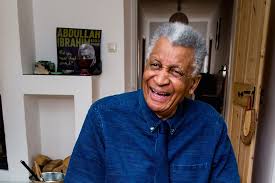

South African Jazz great Abdullah Ibrahim to embark on world tour at age 90
Renowned South African jazz master and pianist, Abdullah Ibrahim, is set to embark on an unprecedented world tour to celebrate...


Kenya unveils ‘killer-squad’ for Paris Olympics marathon Ahead of the 2024 Paris Olympic
Ahead of the 2024 Paris Olympic Games kicking off in July, Kenya has unveiled a “killer-squad” for the marathon event....
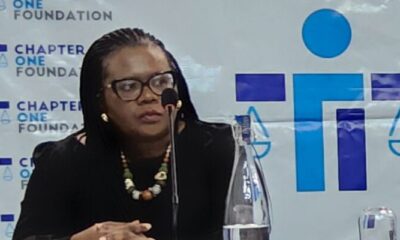

Civil society group says planned online regulation under IBA Act, an affront on media freedom (Video)
Chapter One Foundation Executive Director, Linda Kasonde, says the planned online regulation under the new Independent Broadcasting Authority (IBA) Act...


Clergyman raises concern over abuses associated with digital rights and freedom of expression
Emmanuel Kalulu, a clergy member from the Brethren Christ Church in Choma, has expressed concerns about the misuse of media...
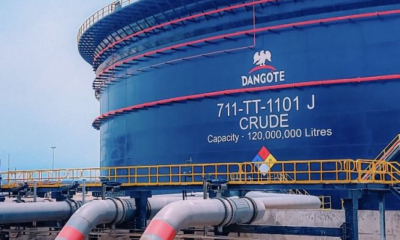

Nigeria’s Dangote refinery set to get valid operating licence
The Nigerian government has revealed that the 650,000 barrels per day Dangote Petroleum Refinery will soon receive a full operating...


US wants UAE, others to cease support for Sudan’s warring parties
The United States wants all countries, including the United Arab Emirates, to stop helping the warring sides in Sudan, the...
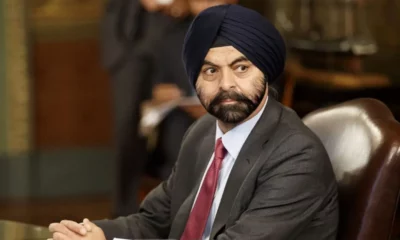

W’Bank chief Banga expects rich nations to meet Africa’s donation expectations
Ajay Banga, President of the World Bank, has said that he thinks donor countries will follow through on African leaders’...


Kenya: President Ruto assured of fresh IMF disbursement
This would help the economy, which is getting better after avoiding a debt problem earlier this year. Since the government...


In 30 years, half of Nigerian biscuit companies went out of business— Manufacturers
The Manufacturers Association of Nigeria has claimed that in the last 30 years, half of the companies in the biscuit...
Trending
-

 Tech1 day ago
Tech1 day agoVillage Capital partners Norad to launch climate-focused programme in Africa
-
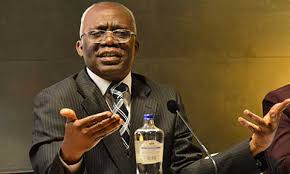
 Metro1 day ago
Metro1 day agoNigeria: Human rights lawyer accuses govt of acting World Bank, IMF script on electricity tariffs hike
-

 Culture2 days ago
Culture2 days agoWizkid, Davido’s online battle gets nasty as they exchange ‘dirty’ tweets
-

 Sports1 day ago
Sports1 day agoCameroon’s boxing icon Francis Ngannou loses 15-month-old son


